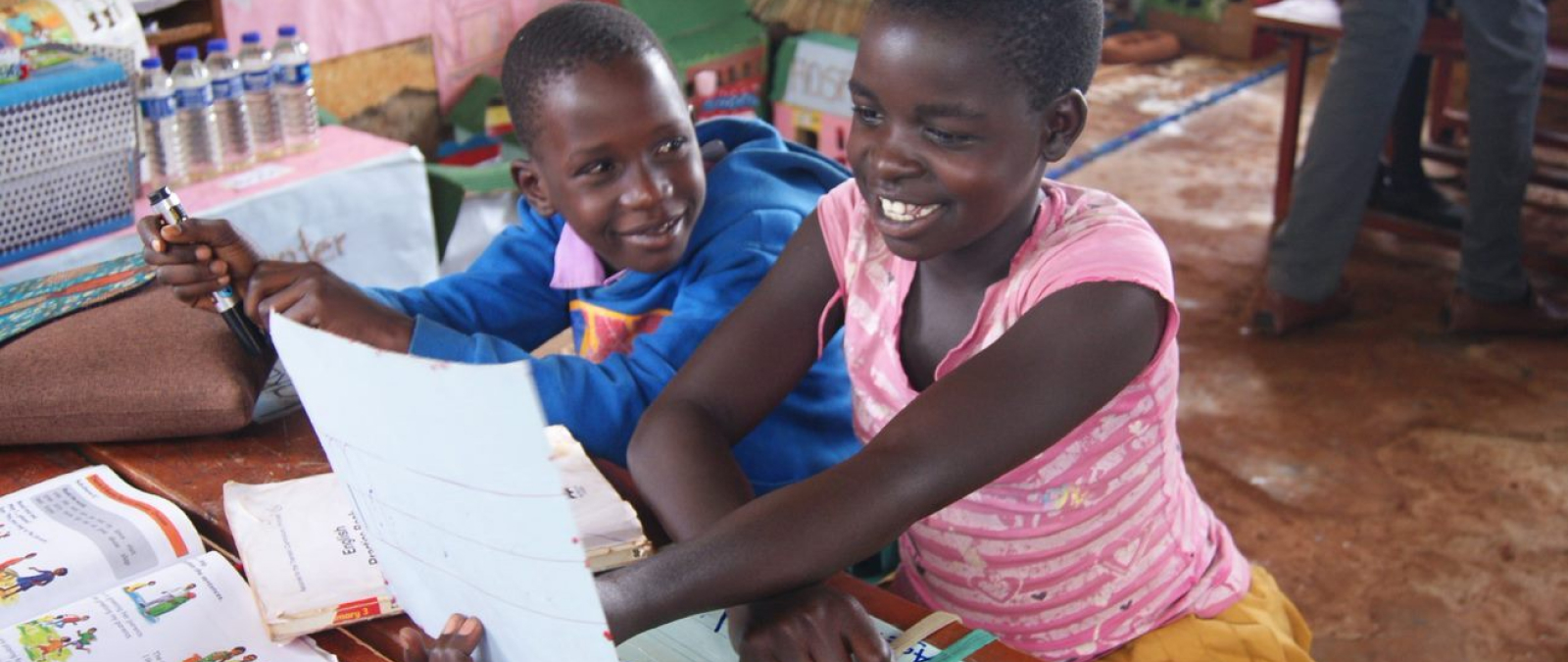This website uses cookies so that we can provide you with the best user experience possible. Cookie information is stored in your browser and performs functions such as recognising you when you return to our website and helping our team to understand which sections of the website you find most interesting and useful.
Geneva Global is part of Global Impact Ventures

Education Inititives > education articles
Concerned by the Whole Child: A Case Study
Anthony explained that when he supervises classes he looks beyond the facilitator’s instruction and classroom activities, observing first and foremost “the individual student.”
After observing a Speed School lesson for about twenty minutes, Anthony focused his attention on a girl seated in the back left corner of the classroom. She seemed entirely disconnected from the lesson. Drawn to investigate further, Anthony tried to interact with her. “I went over to ask how the lesson was going,” he later reported, “but she didn’t respond.” He took her aside to get a better sense of what was happening and discovered that the girl was hungry. In fact, he learned, she had not eaten in two days. She explained that her biological parents are dead, so she lives with her stepmother, who does not take good care of her. After school, she fetches water and carries firewood. She takes the animals to graze in the morning and brings them back in the evening. Even after all that work, she often goes to bed without eating. Anthony Oryema, a Program Officer at Geneva Global Uganda, explained, “I felt very sorry for her. I couldn’t forget it.” The following week, he raised the girl’s situation to the management committee of her class’s Self-Help Group. Following, the management committee spoke to the girl’s stepmother, who is also a member of the Self-Help Group. The members aimed to understand the stepmother’s situation better and to help find solutions. When Anthony followed up a few weeks later, the girl reported that she was now eating regularly. Unfortunately, many students face obstacles regarding their education, including hunger, before even stepping foot into the classroom. Speed School aims to address the whole student, including critically helping to ensure a positive home and community context for learning. Anthony explained that when he supervises classes he looks beyond the facilitator’s instruction and classroom activities, observing first and foremost “the individual student.” He interviews them to understand their lives at home, asking questions such as, “Do you have living parents? Are your parents together? Are you eating regularly? and How do you feel physically and emotionally?” If he identifies issues at home, he initiates dialogue with the parents, or guardians, through the class management committee to understand the sources of any problems and generate a plan of action. Parents can look for guidance in their Self-Help Group to bolster their income, find community support, and even borrow from the group’s savings. By building and strengthening networks across communities, the Self-Help Group provides parents and other guardians with the capacity and motivation to continue to support their children’s success in the classroom and beyond. All these resources ensure that a child feels physically and emotionally capable and stimulated to learn. As Anthony asserts, “if the child is well taken care of, he or she will be a better student.”
